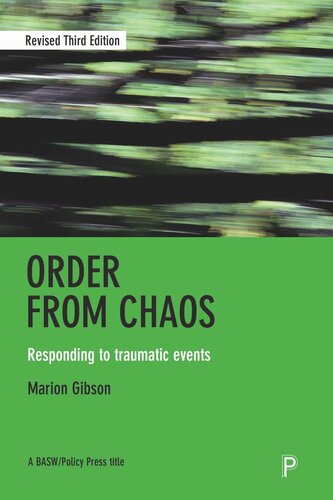

Most ebook files are in PDF format, so you can easily read them using various software such as Foxit Reader or directly on the Google Chrome browser.
Some ebook files are released by publishers in other formats such as .awz, .mobi, .epub, .fb2, etc. You may need to install specific software to read these formats on mobile/PC, such as Calibre.
Please read the tutorial at this link: https://ebookbell.com/faq
We offer FREE conversion to the popular formats you request; however, this may take some time. Therefore, right after payment, please email us, and we will try to provide the service as quickly as possible.
For some exceptional file formats or broken links (if any), please refrain from opening any disputes. Instead, email us first, and we will try to assist within a maximum of 6 hours.
EbookBell Team

4.8
94 reviewsIn the context of recent natural disasters and the increase of global terrorism, there is a need for a greater understanding of the psychosocial impact of such events on the individuals and communities involved. This understanding can also enhance the support offered to people sho have to face trauma in their individual lives. Those who provide such a response need to develop their skills in this area of work. They too need to feel that they are supported in their work. This revised and expanded edition of a highly successful book consolidates the core elements of good proctice while bringing theory and practice issues up to date. As with the first and second editions, this book can be used as a guide for best practice and as a resource for instant reference when staff are faced with responding to traumatic incidents. It also provides up-to-date case studies, drawing on the author's knowledge and experience and points the way for further, more specialised study. The book identifies core elements that are common to most traumatic events; discusses practical methods of intervention that are based on analysis of contemporary research and best practice in a multidisciplinary context; shows how the skills discussed can be transferred to individual clinical practice; addresses the needs of responders and the responsibility of organisations to provide a 'duty of care' for those who are exposed to trauma in their occupational roles and presents a modular programme of training, devised by the author, to prepare responders in the pre-crisis period. Order from chaos is essential reading for all those who are or may be involved in supporting those who are experiencing the impact of trauma in their lives. It is also an invaluable resource for trainers in the field, and for social work and health and social care students and their teachers.